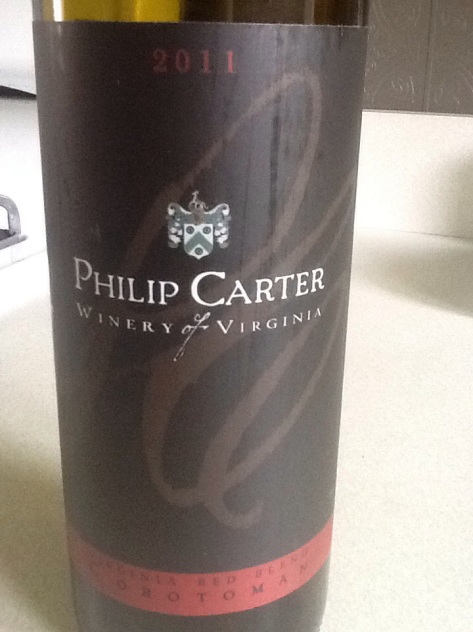
Besides their award-winning Norton, Paradise Spring’s 2011 Meritage (rhymes with heritage) is the big boy of their line up. Just in case you didn’t know or were wondering, Meritage is the American name for Bordeaux blends. It’s kind of like how the English call Bordeaux wines Clarets.
As with all Meritage, this wine consists of several of the noble varietals used for blending in the region of Bordeaux. As you may or may not know, to be a Meritage, it must contain any combination of at least two of the five noble grapes: Cabernet Sauvignon, Merlot, Cabernet Franc, Petit Verdot, and Malbec. This particular vintage includes 31% Cabernet Franc, 29% Petit Verdot, 26% Cabernet Sauvignon, and 14% Malbec.
I can usually determine by the percentages and the varietals what a winemaker is trying to achieve. For example, if I came across a blend of 60% Cabernet Sauvignon, 30% Merlot, and 10% Petit Verdot, it is likely that the Petit Verdot, a stout and tannic grape, is being used to enhance and/or add to the complexity to the blend, especially if one or more of the other varietals are a little leaner from a not so great growing season. That’s why blends are a region like Virginia’s best friend. Winemakers here understand that they can use the best of the harvest to blend a complex and palatable wine that they would otherwise not be able to accomplish with a single varietal.
Looking at Paradise Spring’s array of varietals and percentages, it’s seems pretty even across the board. What does this mean exactly? I’ve noticed that blends in Virginia are all over the place, from two varietals to all five noble grapes. I can only surmise that with most of the Virginia wineries opening their doors within the last decade, they are still experimenting with blends. Of course weather is a major factor here vice California, so the strength of varietals from vintage to vintage changes often.
It’s up to the winemaker’s ability to craft together a good wine with sometimes limited capacity grapes in leaner years, making Virginia one of the best regions in the world to gain experience working through challenging vintages. That being said, I think that the winemaker at Paradise Springs has adapted well to this environment, consistently making top-notch wines that are a great example of Virginia terroir.

